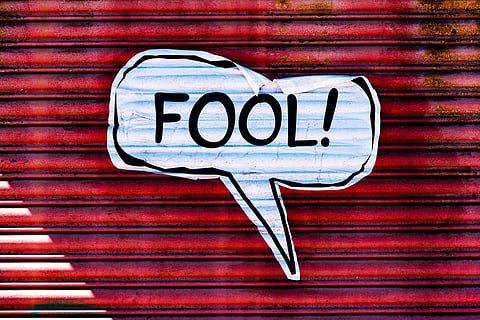
- LIFESTYLE
- FASHION
- FOOD
- ENTERTAINMENT
- EVENTS
- CULTURE
- VIDEOS
- WEB STORIES
- GALLERIES
- GADGETS
- CAR & BIKE
- SOCIETY
- TRAVEL
- NORTH EAST
- INDULGE CONNECT

April 1st, or April Fools’ Day, is known around the world as a day to play pranks and tricks on friends, family, and colleagues. However, the origins of this lighthearted tradition are much more complex and mysterious than they may seem. Though it is a widely celebrated day, its roots have sparked many theories over the centuries.
One of the most widely accepted explanations for the origins of April Fools’ Day relates to the change in the calendar during the 16th century. In 1582, Pope Gregory XIII introduced the Gregorian Calendar, which shifted the start of the year from April 1st to January 1st. Those who continued to celebrate the new year on April 1st were labeled as "April fools," and others would often play tricks on them to mark the occasion. These pranks included things like sending them on "fool's errands" or making fun of their outdated celebration.
While the Gregorian calendar change provides a plausible reason for the modern observance of April Fools’ Day, other historical influences are also thought to contribute to the custom of playful deception. Ancient Roman festivals such as "Hilaria," celebrated at the end of March, involved people disguising themselves in costumes, telling jokes, and engaging in light-hearted mischief. Similarly, the French "Poisson d'Avril" or "April Fish" tradition—where people would tape paper fish to others' backs as a prank—originated as part of this broader tradition of celebrating the arrival of spring with playful and unpredictable behavior.
While these ancient celebrations were centered around humor and trickery, they were also rooted in the rebirth and renewal associated with the changing seasons. The connection between springtime festivities and humor is evident in various cultures, with the common theme of using laughter and mischief to mark a time of transition.As Europe evolved and the Gregorian calendar spread across the continent, the celebration of April Fools' Day continued to grow, with different cultures adding their own unique twist to the tradition. Today, the day is widely recognized across the globe, though the specific pranks and customs vary by country. Whether it's tricking friends with harmless jokes, watching hilarious "news" stories, or pulling off elaborate hoaxes, April Fools' Day remains a global occasion to embrace humor, mischief, and the spirit of fun.